Photography by Christoph Walters
For generations dairy has been a key controversial player in America’s bizarre food culture. Not only have milk, cheese, and butter been touted as essential for a growing kids diet by government drafted food pyramids (despite the fact that 1 in 4 Americans are unable to digest milk), they are also prized for their ability to deliver calcium, a key mineral in bone stability and nervous system function. Pediatricians in the early 1900’s even started recommending milk as a healthy alternative to breastfeeding because of its fat and protein content. But as time passed, more and more health issues were linked back to dairy intolerance and questionable nutrition benefits, not to mention the delicate pasteurization practices that to this day falter.
When the line between health and politics came more into focus in the early 2000’s, consumers wised up a bit and started asking questions. Some say that pasteurized, low-fat dairy is healthy and should be consumed two to three times daily, while others claim that raw, full-fat dairy is a healthy MUST. Another tribe will insist on a purist approach with no dairy at all. So what is the what with dairy? Well, it turns out, for us humans, dairy is a best enjoyed as rare joy inducing treat rather than a delivery system for calcium.
Calcium is by far the most abundant mineral in the human body and serves several important functions including but not limited to fortifying the structural integrity of our bone health. Our body gets the calcium it needs to function by absorbing it from the food we eat into the bloodstream, or when blood calcium levels are too low, extracting it from our bones. Now ideally, calcium that is taken from the bones will be restored when blood calcium levels are replenished. But while you might think that a glass of milk is a great solution, take this into account- dairy based calcium sources will block your body from absorbing magnesium and are a poor source of vitamin K, both of which are essential to calcium integration.
Vitamin D and Calcium
Without Vitamin D your body is only able to absorb about 10% of the calcium you ingest so even if you are eating boat loads it can’t be used! Vitamin D is also significant in helping prevent chronic diseases including cancer, and inflammatory illnesses such as heart disease, diabetes, auto-immune disease and osteoporosis.
Vitamin K and Calcium
Vitamin K helps proteins bind to calcium and transports them to bones, organs, and other tissues. Vitamin K is also needed in the bone to produce a protein called osteocalcin which binds calcium to the bone.
Magnesium and Calcium
Through many biological mechanisms, magnesium is needed for calcium absorption and bone formation. It is crucial in the regulation of bone turnover. The liver also needs magnesium to convert vitamin D into its active form.
Good dairy-free sources of dietary calcium
- Whole wheat products ( though avoid these if you are gluten intolerant)
- Vegetables in the brassica family: cauliflower broccoli,cabbage, bok choy
- Dark leafy greens: collards, kale, turnip greens, dandelion greens, mustard greens, beet greens
- Canned fish/crustaceans with bones:, sardines, pink salmon
- Beans/legumes:edamame, tempeh, black-eyed peas, black beans, dried beans
- Okra
- Nuts and seeds:almonds, sesame seeds
- Mineral water
- Herbal teas and infusions: oatstraw, nettle, red clover


















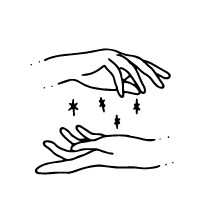


Leave a comment
This site is protected by hCaptcha and the hCaptcha Privacy Policy and Terms of Service apply.